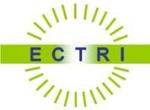
Three different systems were examined: Automatic speed control over a certain distance (line detection ATK), Intelligent Speed Adaptation (ISA) and Event Data Recorders (EDR). Each of these systems can collect data on your driving behavior for a shorter or longer period of time.
Event data recorder
Modern cars are controlled by electronic components. They are also equipped with diagnostic tools that can extract data about the functioning of these components, to be used in connection with repairs and service. The nature of the data that manufacturers can retrieve varies, and is currently somewhat unclear, but what is clear is that this has major privacy implications.
Behavioral data describing speed, instrument use, safety belt use, etc. are often detected without the car owner’s awareness. Such data are also interesting for the police to help with accident investigations. There are companies that specialize in extracting such information.
The Event Data Recorder (EDR) is a "black box" that records a variety of data immediately before, during and after the accident. The Danish insurance company ALKA has a scheme where you get a 40 percent cheaper insurance premium if you have such a "black box" installed.
The focus on Event Data Recorders in Europe and the Nordic countries is small compared with the United States, where such data are actively used for investigation of accidents and blame apportionment.
Section control
Section control, the registration of average speeds over road sections, has also implications for privacy. The system photographs all the cars and drivers to control the vehicle's average speed over a distance. If the average speed is below the speed limit, all information from the two registration points are deleted. At surplus speed the system sends the picture to a back-end system (Administration / Police) for further action.
The system is being tested on three routes in Norway. In Sweden, the measure has been discussed, but the authorities have decided not to implement it for reasons of privacy.
Intelligent Speed Adaptation (ISA)
Intelligent Speed Adaptation (ISA) may be designed as so-called supportive systems that alert the driver if the speed limit is exceeded, or that make it impossible to exceed the speed limit. If the system is based on information from GPS and digital road maps with speed limits, or from intelligent signs that communicate with the vehicles, it could hardly be said to have privacy implications.
The situation would be otherwise, however, if the system were to log positions, movements and speed. Such a system has in fact been introduced in the fleet cars of the Swedish and Norwegian Road Authorities, where data logs include information about when and where vehicles have been speeding. Since this is done at group level and over longer periods, however, it is impossible to identify individuals.
Positive attitude
The survey shows that car owners in Norway, Sweden and Denmark are overwhelmingly positive about the introduction of both section control and systems for automatic speed adjustment to alert them if they drive too fast. It was also found that the greater the understanding of speeding as a risk factor, the greater the acceptance of such traffic regulation measures.
Car owners are most skeptical to event data recorders, about which they are least aware. Three out of five had not heard about them, which means that few are aware that such systems are installed in most new vehicles.
Event data recorders were the measure that respondents in all three countries perceived to have the greatest impact on the privacy. Car owners should be better informed and should be able to access to the data recorded.





